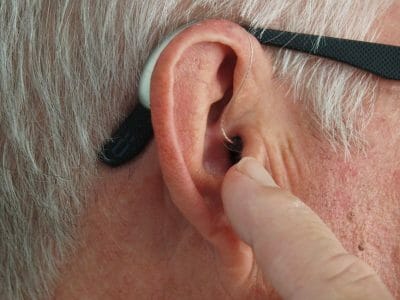Hearing loss is a common condition that affects millions of people around the world. It can occur due to a variety of reasons, including genetics, aging, exposure to loud noises, and certain medical conditions. The severity of hearing loss can range from mild to profound, and it can have a significant impact on a person’s quality of life.
In this article, we will discuss what hearing loss is, its causes, types, symptoms, diagnosis, treatment, and prevention. Our goal is to provide you with a comprehensive guide that will help you understand this condition better and enable you to take the necessary steps to protect your hearing.
Causes of Hearing Loss
Hearing loss can be caused by various factors, including:
- Genetics: Some people are born with a genetic predisposition to hearing loss. This condition is known as congenital hearing loss and can occur due to mutations in specific genes that affect the development or function of the inner ear.
- Aging: As we age, our hearing ability naturally declines. This condition is known as presbycusis and is typically associated with a loss of high-frequency sounds.
- Loud Noises: Exposure to loud noises, such as explosions, gunfire, concerts, and machinery, can damage the sensitive hair cells in the inner ear and lead to hearing loss.
- Medical Conditions: Certain medical conditions, such as otosclerosis, Meniere’s disease, and acoustic neuroma, can cause hearing loss.
Types of Hearing Loss
There are three types of hearing loss:
- Conductive hearing loss: This type of hearing loss occurs when sound waves cannot reach the inner ear due to a blockage or damage to the outer or middle ear. It is often temporary and can be treated with medication or surgery.
- Sensorineural hearing loss: This type of hearing loss occurs due to damage to the hair cells or nerves in the inner ear. It is permanent and can be treated with hearing aids or cochlear implants.
- Mixed hearing loss: This type of hearing loss is a combination of conductive and sensorineural hearing loss.
Symptoms of Hearing Loss
The symptoms of hearing loss can vary depending on the type and severity of the condition. Some common symptoms include:
- Difficulty hearing conversations, especially in noisy environments
- Turning up the volume on the TV or radio
- Asking people to repeat themselves
- Difficulty hearing high-pitched sounds
- Feeling like people are mumbling
- Ringing in the ears
Diagnosis of Hearing Loss
If you suspect that you have hearing loss, you should see an audiologist. They will perform a hearing test, which may include a pure-tone audiometry, speech audiometry, and tympanometry, to determine the type and severity of your hearing loss.
Treatment of Hearing Loss
The treatment of hearing loss depends on the type and severity of the condition. Some common treatment options include:
- Hearing aids: These devices amplify sound and improve hearing.
- Cochlear implants: These devices are surgically implanted and stimulate the auditory nerve to improve hearing.
- Medications: Some medications can improve hearing, but they are usually only effective for certain types of hearing loss.
- Surgery: In some cases, surgery may be necessary to treat hearing loss.
Prevention of Hearing Loss
You can take steps to prevent hearing loss, including:
- Using ear protection when exposed to loud noises
- Turning down the volume on your electronic devices
- Taking breaks from loud noises
- Avoiding the use of cotton swabs or other objects to clean your ears as they can push earwax deeper into the ear canal and cause damage to the eardrum.
- Getting regular hearing tests, especially if you work in a noisy environment or have a family history of hearing loss.
FAQs about Hearing Loss
Can hearing loss be prevented?
Yes, hearing loss can be prevented by taking steps to protect your ears from loud noises and seeking treatment for underlying medical conditions that can cause hearing loss.
How common is hearing loss?
Hearing loss is a widespread condition that affects millions of people worldwide. It is more prevalent in older adults but can occur at any age.
What are the early signs of hearing loss?
Some early signs of hearing loss include difficulty hearing conversations, turning up the volume on electronic devices, and asking people to repeat themselves.
Can hearing aids restore normal hearing?
Hearing aids cannot restore normal hearing, but they can improve hearing ability and quality of life for people with hearing loss.
How do I know if I need a hearing test?
If you suspect that you have hearing loss, you should see an audiologist or hearing healthcare professional for a hearing test.
Preventing Hearing Loss
Hearing loss is a prevalent condition that can have a significant impact on a person’s quality of life. It can occur due to various factors, including genetics, aging, exposure to loud noises, and medical conditions.
There are three types of hearing loss, and symptoms can vary depending on the severity and type of the condition. Treatment options include hearing aids, cochlear implants, medications, and surgery.
You can take steps to prevent hearing loss by protecting your ears from loud noises and seeking regular hearing tests. With the information in this article, we hope that you have a better understanding of hearing loss and how to protect your hearing.
